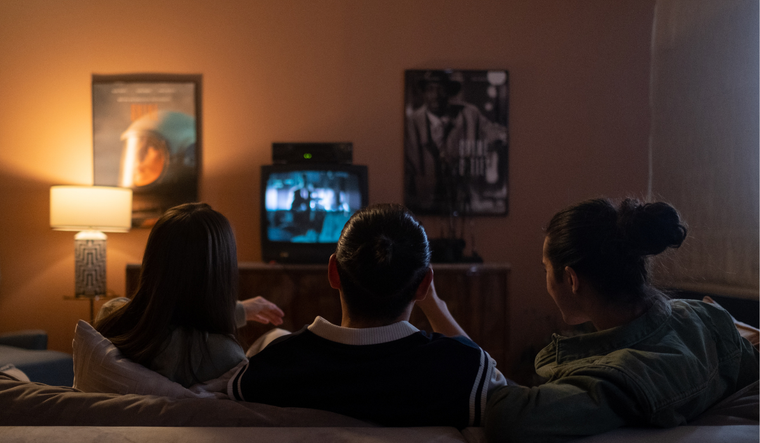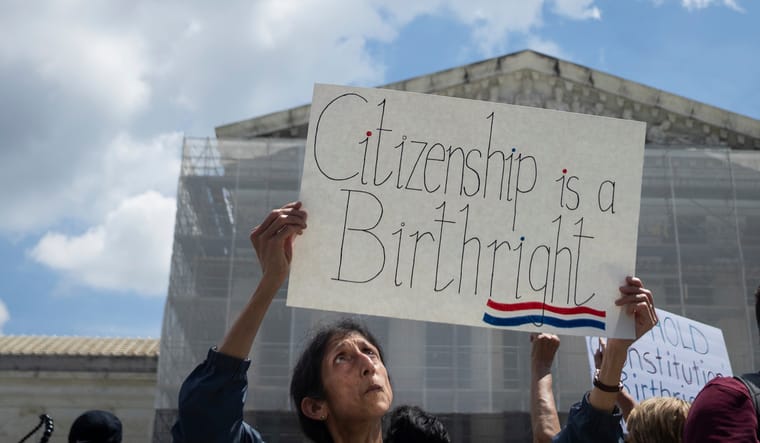I Almost Lost My Daughter During Birth. A Year Later, I'm Taking Back the Worst—and Best—Day of My Life
Sometimes life gives you a sign that you’re exactly where you’re supposed to be. It sends a signal that confirms you’re on the right path, in the right place at the right time.
Sometimes those signs are fleeting—like a strike of déjà vu. Other times they are so clear that they seem to hit you over the head, as beautifully full circle as a graduation or a job promotion or a wedding.
And then there are those times when we nearly miss a sign life is trying to send us, like I almost did a year ago after the birth of my daughter.
When I quit my longtime job as a producer at NBC News in Washington, DC and moved across the country with my husband Peter in 2019, I knew I was taking a leap of faith. I was excited for our next adventure in Los Angeles, but deep down I had no idea whether I would regret the move or not. I already had a job I coveted—one I was immensely proud of and had poured my whole being into succeeding at, even when it broke me at times. Who would I be without it?
It seemed fitting when Maria Shriver, one of my first bosses at NBC, asked me to work with her at her media company. It was a soft place for me to land. Maria welcomed me into her office and eased me into the transition from recovering news producer to editor of The Sunday Paper.
My husband and I settled into our new lives—just in time for COVID to upend all of our lives. Then in 2021, after two years of fertility treatments (and way too many shots), I was finally pregnant with our baby girl, who we would later name Charlotte.
My pregnancy, for the most part, was uneventful. Whenever I felt tired or sick (which was often), I felt humbled by all the women who had come before me. Since our daughter was an IVF baby, I was closely monitored, which helped ease a lot of my anxiety.
Then, last October, when I was about 37-and-a-half weeks pregnant our doctor made the decision to induce. She wasn’t satisfied with our daughter’s recent lack of growth in utero. We drove to the hospital that morning full of nerves and excitement. We took pictures as I sat up in the hospital bed with a primo view of the Los Angeles hills behind me. We couldn’t believe we had such a great room.
Within a few hours, I would be alone in a recovery room after an emergency c-section without having even met my baby.
Turns out I would have a very rare complication after the administration of my epidural. Within moments I couldn’t feel my legs, my chest, my arms, my neck, or my face. My entire body was paralyzed. The feeling of feeling nothing still haunts me. As I went in and out of consciousness, my baby’s heartrate plummeted. I vaguely remember the Code Blue being called and about 20 doctors and nurses gathering around my hospital bed. I remember asking through my oxygen mask, “Am I going to die?”
The doctors moved quickly, but by the time we got to the operating room for my emergency C-section, our daughter had been without oxygen for several minutes. I don’t remember when they pulled her out because she didn’t cry. The room was completely silent except when I occasionally muttered, “Is she okay? Is she okay?” No one answered me. Instead, my husband tried to distract me —whispering “she's beautiful.” I can't begin to imagine how hard that must of been for him.
For 20 minutes, the doctors and nurses worked on her—literally pumping life back into her. If you’re familiar at all with APGAR scores—the system doctors use to score how a newborn is coping right after birth—Charlotte’s was a 1 out of 10. A score of 0 means no signs of life.
As my doctor sewed me back up, I was told Charlotte had been taken to the Neonatal Intensive Care Unit (NICU), put on a ventilator, and would soon have her core body temperature lowered for 72 hours to help prevent swelling in her brain. I would not be able to meet my baby girl that day—the day she was born. I would not be able to hold her for another four days after that as they tried to minimize any potential brain damage. The doctors called this a period of “cooling.”
In the days that followed, our family, friends, and colleagues rallied around us. They called, they sent flowers, they led prayers circles. (My uncle even traveled to pray with some Orthodox Jews.)
A strict COVID no-visitor policy at the hospital meant we had to sneak out to quickly give our parents hugs in the cafeteria courtyard as Charlotte stayed monitored in the NICU. I could sense in their eyes how worried they were about us. I hated that.
As the shock began to wear off, our reality set in. Still at the hospital, I could feel myself questioning every move I’d made. What had I done wrong? Should I have spoken up or advocated for myself (and her) more? Why had this happened to me? To us?
I was in a particularly heavy moment of self-loathing when I received a text from my friend Christina sharing an article she had found. The treatment that Charlotte was receiving—this “cooling” technology—had been researched and funded by the Eunice Kennedy Shriver National Institute of Child Health and Human Development at the National Institutes of Health. Eunice Shriver—Christina’s grandmother and Maria’s mother.
At the time, I didn't give much thought to it. Yet a few months later, as I held my beautiful, thriving baby that at one point I wasn’t sure I’d be able to ever hold, I remembered the article. Was it a sign? I thought to myself. How was it possible that the technology that saved my daughter’s life was researched and funded by the Institute named after the mother of my mentor and boss that I met by happenstance over 10 years ago?
Was it just a coincidence, or was it something more?
How remarkable that years after getting to know Eunice’s daughter and granddaughters and great-grandaughters, my own daughter’s life and health would be helped by an institution that carries her name and legacy.
Tomorrow, October 3rd, is Charlotte’s 1st birthday. I’ve both dreaded and looked forward to this day because the day she was born was both the best and worst day of my life. For a long time, I felt guilty about how she came into this world. I wondered if there was anything I could have done differently to spare her such an abrupt and bumpy entrance. But deep down in my bones, I know that it was always supposed to be this way.
When we’re wrecked by indecision or worry, we may not always be able to see how our choices are going to play out. No one has a crystal ball. But if you listen carefully enough, the universe is always talking—no matter who or what you do or don’t worship. I never met Eunice Shriver, but our paths are forever intertwined (if they weren’t already).
On Saturday, we’ll throw Charlotte a big over-the-top 1st birthday party with lots of family and friends. We’ll celebrate the miracle that is her. We’ll celebrate that she’s here. And we’ll celebrate with the comfort of knowing that we’re both exactly where we’re supposed to be.
Cydney Weiner is the Managing Editor of The Sunday Paper and Chief Operating Officer of Shriver Media. She lives in Los Angeles with her husband, daughter, and two dogs.
Please note that we may receive affiliate commissions from the sales of linked products.



